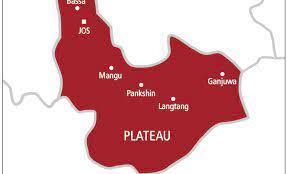Stories by Patrick Andrew Abuja Despite growing talks that the Organisation of the Petroleum Exporting Countries (OPEC) could pressure Nigeria and Libya to cut down on oil production in line with the quota system, the organisation in collaboration with non-OPEC members introduced to curb glut and stabilise prices, oil recovered yesterday to stand at about $47. Nigeria and Libya were exempted from the OPEC with some non-member nations agreement to cut global output by two percent.
Th e exemption was meant to allow their production to rebound following years of fi ghting between the militants in Niger Delta in the case of Nigeria and the rebel groups in Libya. Insurgency in these countries greatly aff ected output and had a spill over eff ect in the global output of the product. However, in the case of Nigeria production has steadily risen in recent months following negotiations between the federal government and leadrs of the oil producing communities.
In fact, Nigeria, according to the Minister of State for Petroleum Resources, Dr. Ibe Kachikwu, oil production is likely to rise above 2 million barrels per day next month a vast improvement on the 1.2 million barrels per day sometime in 2016. At present, the overall oil production from both countries is said to have off -setted some onethird of the cuts made so far this year by other members of OPEC and the non members that agreed to work together in that regard. The development is said to have angered some members like
Kuwait, Saudi Arabia among others who have raised concerns over the quota arrangements and OPEC monitoring panel will in about a fortnight on July 24 in Moscow, where it is expected to discuss the matter. Also, the talks has been sustained despite shrink in the United States’ stockpiles and the growing concern that the sharp drop could force upward movement in the prices of oil in the international market. Before now, prices fell 6 percent in the three sessions ending last week before beginning a tepid recovery Monday during U.S. trading.
Pushback from Nigeria and Libya to continue exemptions is expected to be strong, said Tim Evans, a Citi Futures analyst. But they may “be open to some form of limits if the right financial incentive can be found.” “The rather muted price reaction thus far highlights that there is probably little conviction out there that such a cap would actually end up being lower than current production levels,” analysts at JBC Energy wrote in a note Tuesday morning. Prices had also been helped Monday when data provider Genscape said stockpiles at Cushing, Oklahoma, shrank 2.1 million barrels from June 30 to July 7, according to Reuters’ report. Cushing is the delivery point for the benchmark U.S. West Texas Intermediate oil contract and often regarded as a bellwether for supply and demand trends. Traders and analysts were looking ahead to the monthly reports of OPEC and the International Energy Agency, to be released today and Th ursday, respectively. Nigeria has so far saved $40 billion through modest local refi ning of petroleum products and the Direct Supply Direct Purchase (DSDP) scheme, meant to forestall artificial scarcity of products since the beginning of the year. Also, the Nigerian National Pe t r o l e u m C o r p o r a t i o n (NNPC) said persistent eff orts aimed at improving performance in the downstream sector had led to stability in the market as it ensured suffi cient petroleum products are availability across the country. T h e Gro u p Ma n a g i n g Director of NNPC, Dr. Maikanti Baru, disclosed recently, while speaking on the achievements of the corporation in the last one year. “We have also commenced the resuscitation of our products transportation pipelines network, thus enabling us move products to depots at faster rate and cheaper distribution costs to consumers.
The Aba, Mosimi, AtlasCove and Kano Depots have all been re-commissioned and are currently receiving products, thereby enhancing products availability across the Country”, the GMD said. According to him, the NNPC had the improved capacity utilization of the refineries in the country adding that it has also projected that they would attain supplying 50 per cent of the non-gasoline white products to the nation, including diesel and kerosene that are commonly consumed nationwide. He said after more than seven years of dormancy, the Asphalt Blowing Unit of the Kaduna Refining and Petrochemical Company (KRPC) was resuscitated to meet road construction needs in the country.
In apparent reference to ongoing discussions with Agip and Dangote Group, Dr Baru announced that efforts were ongoing to secure 3rd party fi nancing to revamp the refi neries to their full operational capacities. He particularly lauded the labour unions within the oil industry especially Nigerian Union of Petroleum and Natural Gas Workers (NUPENG), and Petroleum and Natural Gas Senior Staff Association of Nigeria (PENGASSAN) for cooperating with the NNPC to forestall incidences of hoarding and artifi cial scarcity of petroleum products nationwide. “I look forward to your continued cooperation and support as we navigate the Corporation out of its current challenges towards profi tability with integrity and tr



